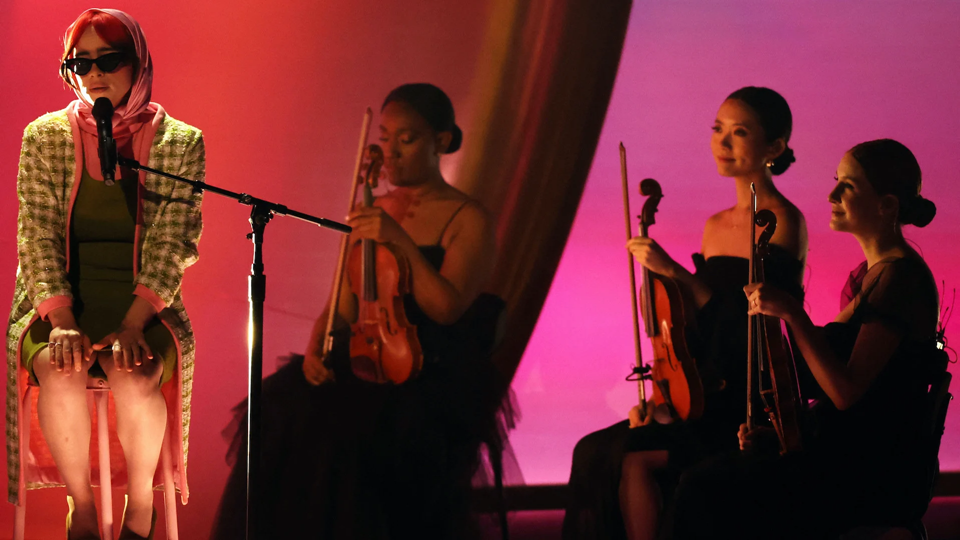Anti-AI lawsuits in the music industry pose novel questions for courts
Anti-AI lawsuits in the music industry pose novel questions for courts
Country musician Tift Merritt’s most popular song on Spotify, “Traveling Alone,” is a ballad with lyrics evoking solitude and the open road. Prompted by Reuters to make “an Americana song in the style of Tift Merritt,” the artificial intelligence music website Udio instantly generated “Holy Grounds,” a ballad with lyrics about “driving old backroads” while […]
BY Reuters
Country musician Tift Merritt’s most popular song on Spotify, “Traveling Alone,” is a ballad with lyrics evoking solitude and the open road. Prompted by Reuters to make “an Americana song in the style of Tift Merritt,” the artificial intelligence music website Udio instantly generated “Holy Grounds,” a ballad with lyrics about “driving old backroads” while “watching the fields and skies shift and sway.”
Merritt, a Grammy-nominated singer and songwriter, told Reuters that the “imitation” Udio created “doesn’t make the cut for any album of mine.”
“This is a great demonstration of the extent to which this technology is not transformative at all,” Merritt said. “It’s stealing.”
Merritt, who is a longtime artists’ rights advocate, isn’t the only musician sounding alarms. In April, she joined Billie Eilish, Nicki Minaj, Stevie Wonder and dozens of other artists in an open letter warning that AI-generated music trained on their recordings could “sabotage creativity” and sideline human artists.
The big record labels are worried too. Sony Music, Universal Music Group and Warner Music sued Udio and another music AI company called Suno in June, marking the music industry’s entrance into high-stakes copyright battles over AI-generated content that are just starting to make their way through the courts.
“Ingesting massive amounts of creative labor to imitate it is not creative,” said Merritt, an independent musician whose first record label is now owned by UMG, but who said she is not financially involved with the company. “That’s stealing in order to be competition and replace us.”
Suno and Udio pointed to past public statements defending their technology when asked for comment for this story. They filed their initial responses in court on Thursday, denying any copyright violations and arguing that the lawsuits were attempts to stifle smaller competitors. They compared the labels’ protests to past industry concerns about synthesizers, drum machines and other innovations replacing human musicians.
Uncharted ground
The companies, which have both attracted venture capital funding, have said they bar users from creating songs explicitly mimicking top artists. But the new lawsuits say Suno and Udio can be prompted to reproduce elements of songs by Mariah Carey, James Brown and others and to mimic voices of artists like ABBA and Bruce Springsteen, showing that they misused the labels’ catalog of copyrighted recordings to train their systems.
Mitch Glazier, CEO of the music industry trade group the Recording Industry Association of America (RIAA), said that the lawsuits “document shameless copying of troves of recordings in order to flood the market with cheap imitations and drain away listens and income from real human artists and songwriters.”
“AI has great promise – but only if it’s built on a sound, responsible, licensed footing,” Glazier said.
Asked for comment on the cases, Warner Music referred Reuters to the RIAA. Sony and UMG did not respond.
The labels’ claims echo allegations by novelists, news outlets, music publishers and others in high-profile copyright lawsuits over chatbots like OpenAI’s ChatGPT and Anthropic’s Claude that use generative AI to create text. Those lawsuits are still pending and in their early stages. Both sets of cases pose novel questions for the courts, including whether the law should make exceptions for AI’s use of copyrighted material to create something new.
The record labels’ cases, which could take years to play out, also raise questions unique to their subject matter—music. The interplay of melody, harmony, rhythm and other elements can make it harder to determine when parts of a copyrighted song have been infringed compared to works like written text, said Brian McBrearty, a musicologist who specializes in copyright analysis.
“Music has more factors than just the stream of words,” McBrearty said. “It has pitch, and it has rhythm, and it has harmonic context. It’s a richer mix of different elements that make it a little bit less straightforward.”
Some claims in the AI copyright cases could hinge on comparisons between an AI system’s output and the material allegedly misused to train it, requiring the kind of analysis that has challenged judges and juries in cases about music. In a 2018 decision that a dissenting judge called “a dangerous precedent,” Robin Thicke and Pharrell Williams lost a case brought by Marvin Gaye’s estate over the resemblance of their hit “Blurred Lines” to Gaye’s “Got to Give It Up.” But artists including Katy Perry and Ed Sheeran have since fended off similar complaints over their own songs.
Suno and Udio argued in very similar court filings that their outputs do not infringe copyrights and said U.S. copyright law protects sound recordings that “imitate or simulate” other recorded music.
“Music copyright has always been a messy universe,” said Julie Albert, an intellectual property partner at law firm Baker Botts in New York who is tracking the new cases. And even without that complication, Albert said fast-evolving AI technology is creating new uncertainty at every level of copyright law.
Whose fair use?
The intricacies of music may matter less in the end if, as many expect, the AI cases boil down to a “fair use” defense against infringement claims—another area of U.S. copyright law filled with open questions.
Fair use promotes freedom of expression by allowing the unauthorized use of copyright-protected works under certain circumstances, with courts often focusing on whether the new use transforms the original works. Defendants in AI copyright cases have argued that their products make fair use of human creations, and that any court ruling to the contrary would be disastrous for the potentially multi-trillion-dollar AI industry.
—Blake Brittain, Reuters
(9)



